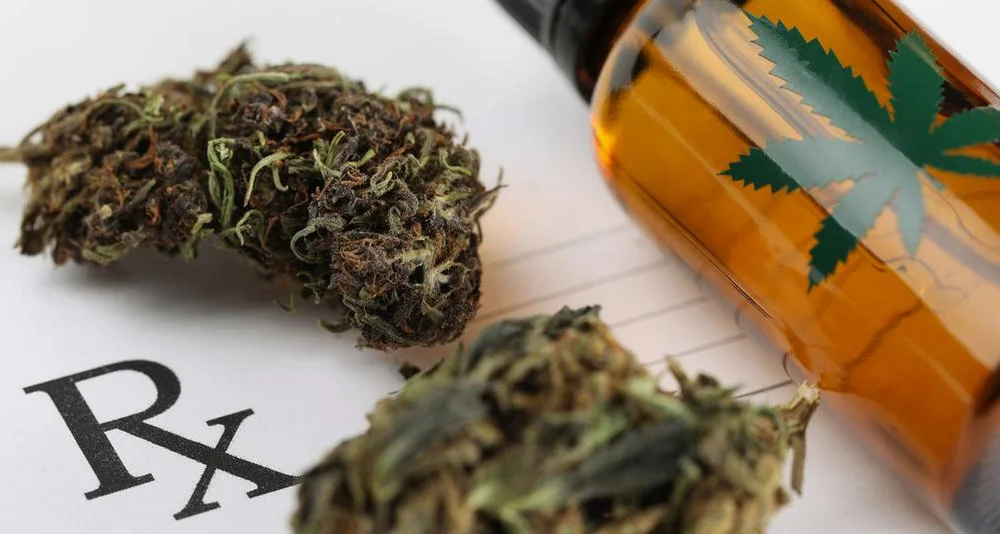The recent trend towards merging the medical and recreational cannabis sectors has raised concerns about the negative consequences for patients. This transition, largely driven by economic motivations, poses significant risks to those who rely on cannabis for medical purposes.
Consider that the recreational industry has spent years convincing people to stop using “recreational” and use “adult-use” instead. While superficially this is touted as destigmatizing cannabis, more insidiously it elevates the notion that people (patients) should self-medicate and don’t need physician guidance.
Divergent Priorities: Profit vs. Patient Welfare
One of the primary concerns arising from folding medical into recreational cannabis is the potential conflict of interests between profit maximization and patient-centric care. In the pursuit of profits, companies prioritize market expansion and consumer appeal over the needs of medical cannabis patients. This leads to a dilution of product quality and accessibility for patients who depend on cannabis for therapeutic relief.
Remember that clinicians are typically telling patients to use the least amount necessary to achieve benefit. This creates benefit while avoiding complications such as tolerance, dependence, and use-disorders. On the other hand, the cannabis industry, just like Coca-Cola of yore, very much profits by users, medical or recreational, using too much and developing the above problems – it keeps them coming back and buying ever increasing amounts.
Erosion of Specialized Medical Expertise for Medical Cannabis
The specialized medical and scientific knowledge and expertise required to care for medical cannabis patients is already facing erosion in the wake of industry convergence. Medical cannabis practitioners and researchers have historically focused on providing safe and effective treatments for patients, but as the industry undermines their involvement by promoting recreational or self-medication, ultimately the efforts of these experts may prove to be unsustainable.
This shift could result in a loss of critical medical insights and hinder advancements in cannabis-based therapeutics, ultimately depriving patients of potentially life-changing treatments.
Stymied Research Efforts
Commonly the argument for recreational legalization, particularly on a national level, is that “we can finally get the research we’ve been hoping for”. However, this is fundamentally untrue. No company is going to invest hundreds of millions of dollars to do this research if they can simply put a product on the shelves without proving anything. This is the case at present and full legalization will seal the fate of all but the most academic inquiries.

Regulatory Dilution and Patient Safety Concerns
Promotion of recreational cannabis over medical raises questions about the maintenance of stringent quality control and safety standards. Dilution of these vital safeguards could potentially expose patients to substandard or adulterated products, like those already found on the hemp marketplace, and could have serious implications for patient safety and well-being.
Escalating Costs and Accessibility Issues for Medical Cannabis
The takeover of recreational cannabis markets exacerbates the financial burden on patients. Historically, medical cannabis has been subject to specific pricing structures and accessibility measures aimed at ensuring affordability for patients in need. Dissolving medical into the recreational sector will lead to inflated costs that hinder access for vulnerable patient populations.
Moreover, the sole focus on the recreational market will divert resources and attention away from specialized medical cannabis products, potentially limiting the availability of products and formulations tailored to specific medical conditions.
So What’s the Solution?
I’m not sure there is a good solution per se. I, and the Association of Cannabinoid Specialists, have been advocating for a national medical regulatory system that prioritizes patient care. By installing a true prescribing process with a moratorium on non-medical personnel giving medical advice, patients would be properly encouraged to seek and receive care from knowledgeable and caring cannabinoid specialists. Further, those specialists would feel secure that their patients will receive the correct and appropriate medication. We are working to ensure that there are adequate numbers of these specialists and that they are properly trained. You can read more about our efforts and support us here.
However, it may be that the cat is already so far out of the bag that there’s no political will to do right by patients. In this case, I predict that the industry will win the battle to do away with medical and treat patients like just another recreational user. This will undoubtedly harm patients and many will go either untreated or over self-treated. It is my hope that if this happens the wise few will still seek expert care, and the pharmaceutical industry will step in to provide truly researched and effective medications approved by FDA.
My great concern over this is not the menace of big pharma, but rather that good, FDA-approved medications take many years, even a decade, to develop and prove. This may leave patients with no options in the interim.
Consult with a Qualified Boston Medical Marijuana Expert Today
Those considering using THC, CBD, or any type of medicine found in cannabis to help manage their condition should consider speaking to a trained medical expert who is knowledgeable about using cannabis therapeutically. Massachusetts medical marijuana doctor Jordan Tishler, M.D. sits on the faculty of Harvard Medical School and has years of experience helping patients treat pain and other ailments using cannabis. He and the team at InhaleMD stand ready to assist patients in determining whether medical marijuana is right for them.
For more information, or to set up a virtual consultation with the team at InhaleMD, call us at (617) 477-8886 today.

